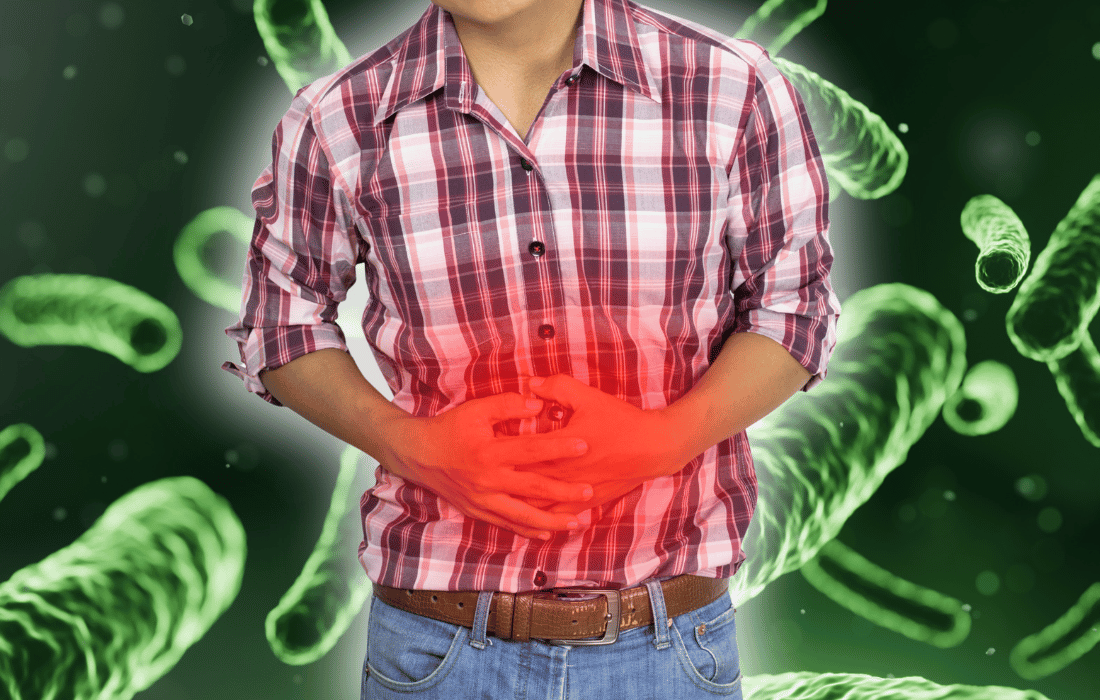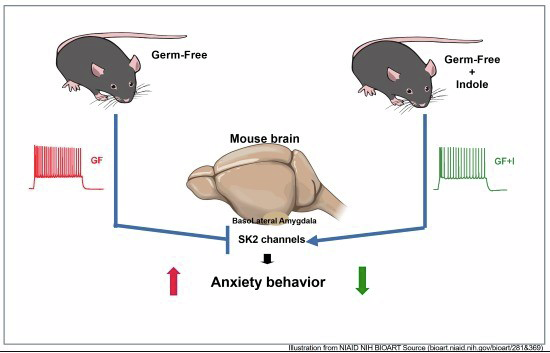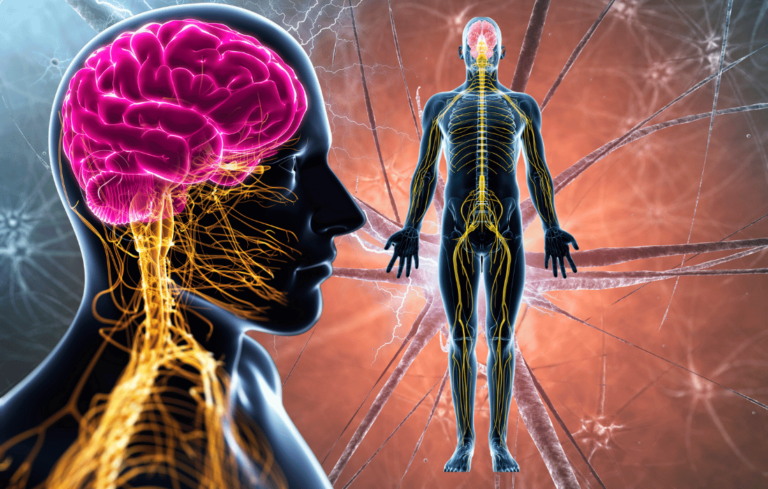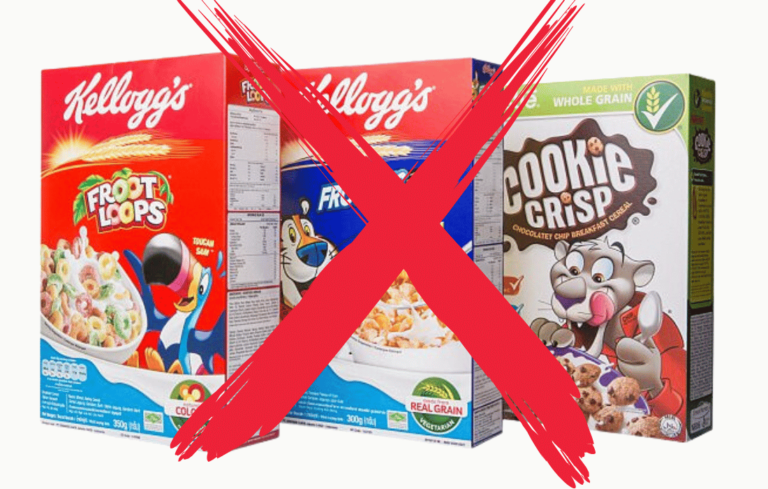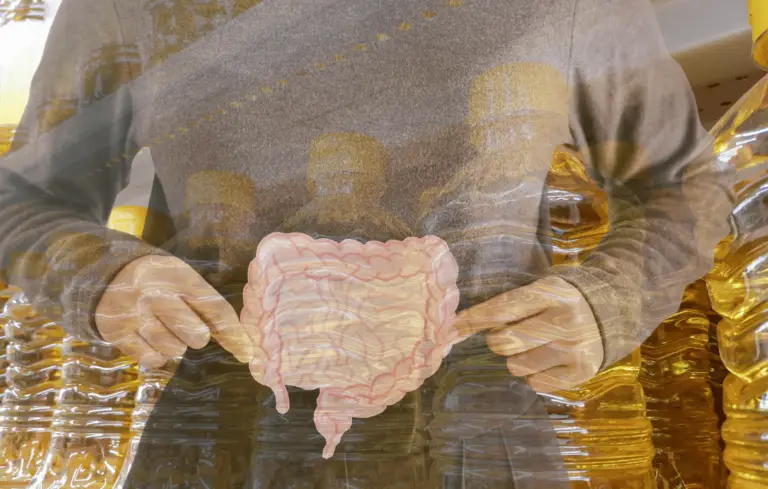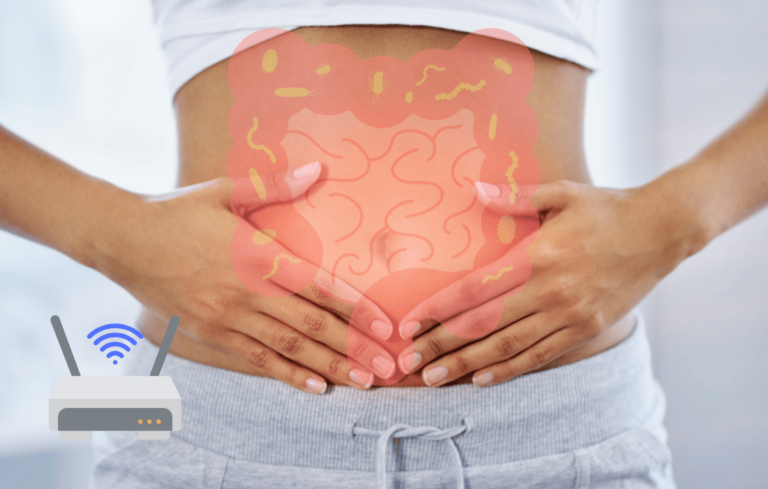Ever had that “gut feeling” when something doesn’t sit right? Or maybe butterflies in your stomach before a big event? Turns out, these aren’t just metaphors—your gut and brain are in constant communication. Scientists now refer to this relationship as the gut-brain axis, a complex two-way communication system linking your digestive system to your central nervous system.
Research suggests that gut bacteria play a critical role in regulating mood, anxiety, and overall mental health. This means that if your gut health is out of whack, your anxiety levels might be, too. And no, this isn’t just some holistic hippie talk—there’s actual science behind it.
Microbes, Metabolites, and Mood: The Science of Anxiety in Your Gut
Your gut is home to trillions of microbes (bacteria, fungi, viruses) that help digest food, synthesize vitamins, and regulate the immune system. But beyond digestion, these microbes also influence neurotransmitters like serotonin, dopamine, and GABA—all of which are crucial for mental well-being. In fact, about 90% of serotonin is produced in the gut, not the brain.
The Vagus Nerve: The Body’s Gut-Brain Highway
The gut and brain are connected through a bi-directional superhighway called the vagus nerve. This nerve directly links the gut’s enteric nervous system (ENS)—also called the “second brain”—to the central nervous system. While the brain contains about 100 billion neurons, the gut has its own independent network of 500 million neurons, making it a major player in how we feel, process stress, and regulate emotions.
The vagus nerve constantly sends and receives signals between the gut and brain. When the gut is inflamed, overrun with bad bacteria, or lacking key nutrients, stress signals are transmitted to the brain, increasing anxiety and emotional distress. Conversely, emotions like stress, fear, and excitement impact gut function, influencing digestion and even triggering IBS-like symptoms. This explains why people experience gut distress when feeling anxious—like getting “butterflies in the stomach” or needing to use the bathroom when nervous.
The Role of Indoles: Anxiety’s Natural Chill Pill
A groundbreaking 2025 peer-reviewed study found that gut microbes produce compounds called indoles, which directly regulate anxiety-related brain activity. Indoles interact with neurons in the basolateral amygdala (the brain’s fear and anxiety center), calming overactive nerve signals and reducing stress responses.
Indoles are secreted by specific gut bacteria when they break down tryptophan, an amino acid found in protein-rich foods. These metabolites travel through the bloodstream to the brain, where they activate SK2 channels—tiny protein structures that prevent neurons from firing excessively. Think of them as little traffic cops, preventing the brain from spiraling into overdrive.
So, what happens when your gut microbiome is imbalanced due to stress, poor diet, antibiotics, or environmental toxins?
Lower levels of indoles → Overactive amygdala → Increased anxiety and panic responses
Reduced serotonin production → Mood instability and depressive symptoms
Compromised gut barrier → Chronic inflammation, which worsens mental health issues
The Domino Effect: How Poor Gut Health Fuels Anxiety
An unhealthy gut doesn’t just affect digestion—it sets off a chain reaction that can impact mood, stress levels, and mental well-being. When gut bacteria are out of balance, the body’s inflammatory response and neurotransmitter production suffer, contributing to chronic anxiety.
1. Dysbiosis: The Bacterial Civil War in Your Gut
Dysbiosis is a fancy word for an imbalance of good and bad bacteria in the gut. When harmful bacteria outnumber the beneficial ones, it can lead to chronic inflammation, leaky gut syndrome, and an overactive stress response.
Studies have shown that individuals with generalized anxiety disorder (GAD) often have lower levels of beneficial bacteria like Lactobacillus and Bifidobacterium. Without these friendly microbes producing anxiety-reducing compounds, the brain is left vulnerable to stress and mood swings.
2. Leaky Gut and Brain Inflammation: The Blood-Brain Barrier Breakdown
The gut lining is supposed to act as a security checkpoint, only allowing nutrients to pass through while blocking harmful substances. But when the gut becomes compromised (a condition known as leaky gut syndrome), toxins, undigested food particles, and inflammatory compounds leak into the bloodstream. These rogue molecules travel to the brain, triggering neuroinflammation and disrupting normal neurotransmitter function.
3. Cortisol, Stress, and the Gut Connection
Chronic stress raises cortisol levels, which can wipe out beneficial gut bacteria. This creates a vicious cycle:
Stress → Imbalanced gut bacteria → Weakened gut-brain communication → Increased anxiety
Increased anxiety → More stress → More gut imbalance
Essentially, your gut is like a garden—neglect it, and the weeds (bad bacteria) will take over, choking out the good stuff.
Healing the Gut to Heal the Mind: Proactive Strategies
The good news? You can take control of your gut health and, in turn, improve your mental well-being. By making mindful dietary choices, incorporating probiotics, and avoiding gut-disrupting foods, you can create a stable foundation for a calmer, more resilient mind.
1. Vagus Nerve Stimulation
Activating the vagus nerve is one of the most effective ways to strengthen the gut-brain connection. The vagus nerve controls parasympathetic nervous system activity, meaning it directly influences digestion, inflammation, and mental relaxation. Techniques such as deep breathing, meditation, cold exposure, singing, and humming have been shown to improve vagal tone, which enhances gut function and reduces anxiety. When the vagus nerve is healthy, it helps regulate gut motility, reduces inflammation, and promotes a calm, balanced mental state.
For a quick and effortless activation, the VeRelief Vagus Nerve Stimulator provides non-invasive stimulation, supporting relaxation and gut function with zero effort. I’ve personally found it to be highly effective at bringing my stress levels down in a very short time. For more details and discounts, check out my in-depth article on vagus nerve stimulation below..
2. Eat More Fermented Foods and Prebiotics
Fermented foods are packed with probiotics—live beneficial bacteria that can replenish your gut microbiome. Some great options include:
Kefir
Sauerkraut
Kimchi
Miso
Yogurt (with live cultures, preferably from raw milk)
Prebiotics, on the other hand, are fibers that feed your good gut bacteria. Foods like garlic, onions, leeks, and asparagus help fuel the production of anxiety-reducing indoles.
3. Try High-Quality Probiotics
If you want to restore your gut microbiome and improve mental clarity, consider supplementing with high-quality probiotics. Below are some of the best probiotic products to support gut health and reduce anxiety.
Jigsaw Health’s Essential Blend Probiotics™
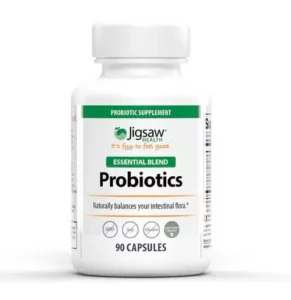
Save 10% on Essential Blend Probiotics with code “KYLETOTHEMOON” Contains 5 of the most clinically researched live strains
Delivers 25 billion “good bugs” per capsule to promote gut health, aid digestion, and support immune function
Utilizes Designed Release Capsule (D.R. Cap™) to ensure probiotics survive stomach acid
Helps restore balance after antibiotic use
Supports healthy digestion and B-vitamin synthesis
Purium’s Biome Medic

Save on Biome Medic with code “KYLETOTHEMOON64” Designed to support microbiome recovery and detoxification
Clinically studied to reduce glyphosate and C-reactive protein levels
Contains prebiotics and probiotics to balance gut flora
Helps boost immunity and gut permeability
Great for those exposed to pesticides and environmental toxins
Purium’s Advanced Probiotic Blend
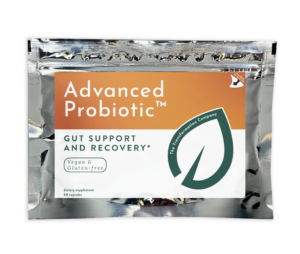
Save on Purium’s Advanced Probiotic with code “KYLETOTHEMOON64” Features a potent mix of beneficial bacteria, including:
L. Gasseri (supports weight management and immune function)
B. bifidum (assists B-vitamin synthesis and digestion)
B. longum (reduces inflammation and supports mental health)
L. paracasei (boosts immunity and supports gut flora)
Lactospore® (B. coagulans 15 billion cfu/g) (promotes digestive health and reduces bloating)
Supports healthy digestion and nutrient absorption
Does not require refrigeration
4. Ditch Processed Foods and Artificial Sweeteners
Processed foods are packed with refined sugars, artificial sweeteners, seed oils, and chemical additives that wreak havoc on gut health. These ingredients fuel harmful bacteria, cause gut inflammation, and disrupt the gut-brain axis.
The Problem with Refined Sugar
Refined sugar feeds bad bacteria and yeast in the gut, leading to dysbiosis. High sugar consumption has been linked to increased gut permeability, inflammation, and even depressive symptoms.
Artificial Sweeteners: Not So Sweet After All
Many people turn to artificial sweeteners like aspartame, sucralose, and saccharin as a “healthy” alternative. However, these sweeteners can kill off beneficial gut bacteria, leading to imbalances that increase anxiety and stress sensitivity.
Seed Oils and Processed Fats
Industrial seed oils (such as canola, soybean, and sunflower oil) are high in omega-6 fatty acids, which contribute to chronic inflammation and oxidative stress in the gut.
Better Alternatives
Opt for whole, organic foods over processed options
Use natural sweeteners like raw honey, maple syrup, stevia, or monk fruit
Choose healthy fats like grass-fed butter, beef tallow, ghee, or coconut oil
By eliminating these harmful ingredients, you give your gut a fighting chance to rebalance and heal, ultimately reducing anxiety symptoms and improving mental clarity.
5. EMF Protection with Aires Tech
Electromagnetic fields (EMFs) from wireless technology, cell phones, and WiFi have been shown to disrupt the gut microbiome unfavorably. Manmade EMFs are also notorious for impairing cellular function and contributing to oxidative stress, which in turn affects gut health. Aires EMF protection devices use patented technology to neutralize harmful EMF radiation, eliminating its negative impact on the body’s nervous system and gut microbiome. Protecting yourself from EMFs can support a balanced microbiome and help prevent disruptions to neurotransmitter function linked to anxiety.
6. Detoxing with Coffee Enemas
Coffee enemas have long been used as a detoxification method to help the liver flush out toxins, but they also play a role in gut health. By stimulating the liver’s bile production, coffee enemas help eliminate harmful bacteria, parasites, and toxins from the intestines, reducing gut inflammation. This practice can aid digestion, support microbiome balance, and even contribute to clearer mental function and reduced anxiety.
7. Parasite Cleanse with Super CleansR
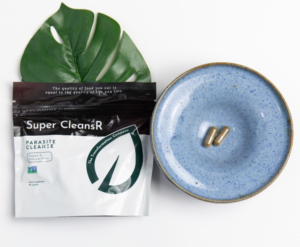
Parasites are an often-overlooked disruptor of gut health. They compete with beneficial gut bacteria for nutrients, excrete toxins that damage the gut lining, and trigger inflammation that can contribute to anxiety. Super CleansR from Purium is a potent yet gentle colon cleanse formulated with black walnut hull, wormwood, clove, marshmallow root, and senna leaf—all of which support the elimination of parasites and restore gut health. A proper parasite cleanse can enhance digestion, improve nutrient absorption, and ultimately support a calmer nervous system.
To take detoxification and gut rejuvenation a step further, I commit to Purium’s 30-Day Ultimate Lifestyle Transformation a few times per year as a powerful reset. This program includes a structured regimen that combines Biome Medic and Super CleansR, creating a potent detoxification process that helps remove gut-disrupting toxins, parasites, and glyphosate buildup while replenishing beneficial bacteria. I have personally seen people experience tremendous healing and improvements in digestion, energy, mental clarity, and overall well-being by committing to this superfood and herbal formula-based program.
Final Thoughts: Your Gut Holds the Key to a Calmer Mind
If you’ve been battling anxiety, it might be time to shift your focus from the brain to the gut. Instead of relying solely on prescription meds or therapy, addressing your diet, microbiome health, and stress levels can create a more balanced, resilient mental state.
Your gut is not just where you digest food—it’s where you digest life itself. So feed it well, keep your microbes happy, and give your anxiety the boot—naturally.

